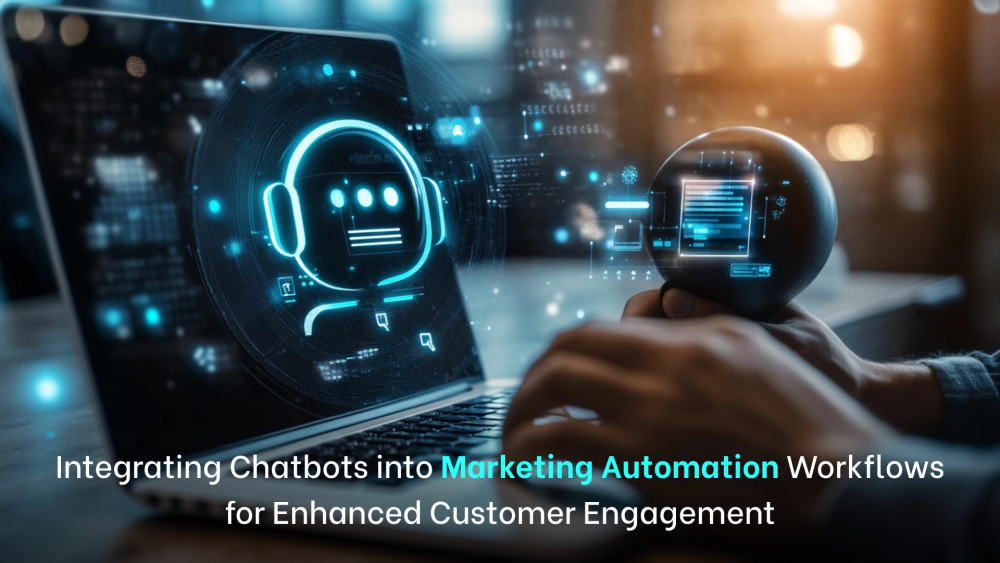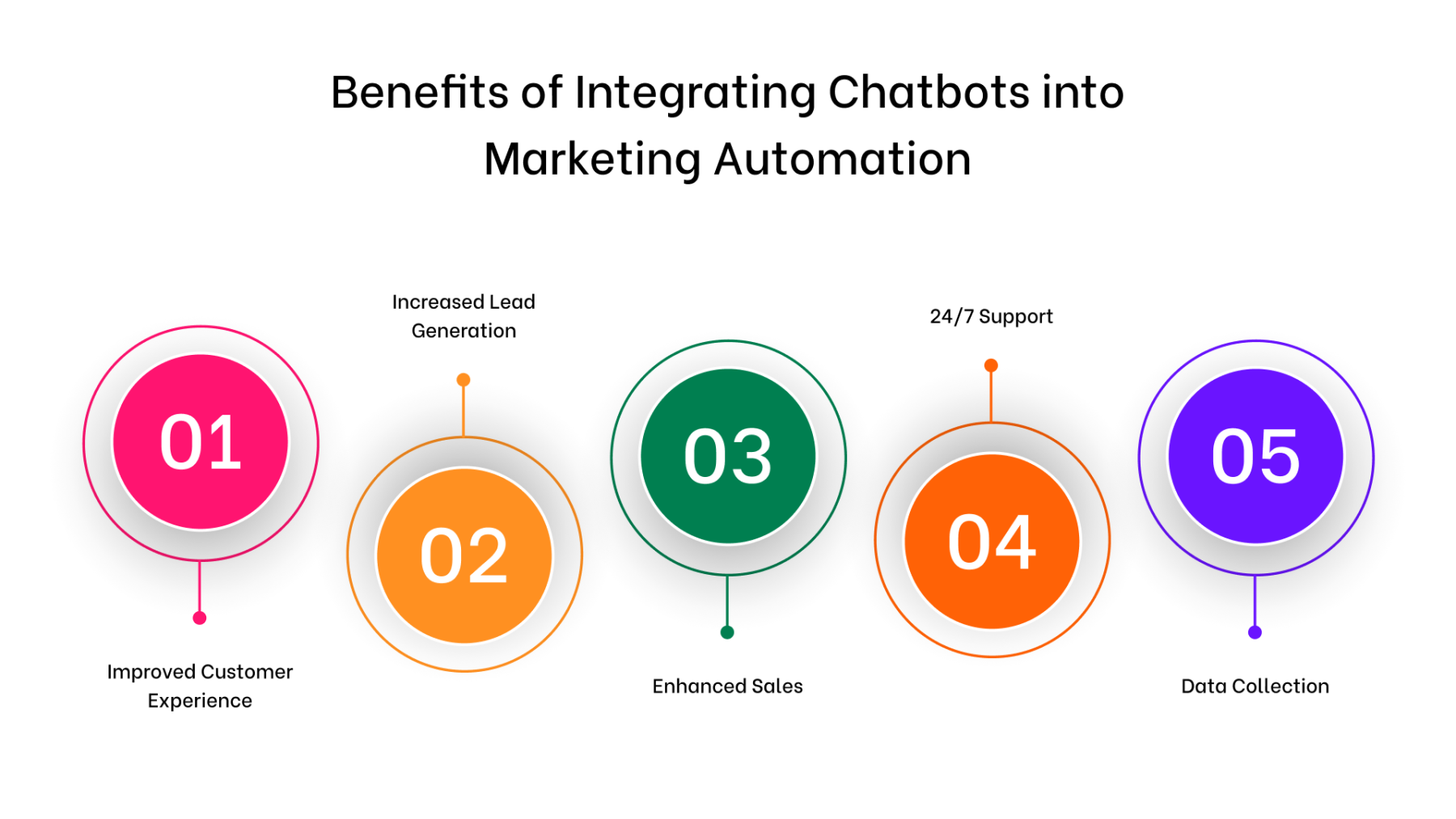Today, customers expect personalized and timely interactions. Chatbots, powered by artificial intelligence (AI), have emerged as a valuable tool for businesses to enhance customer engagement and streamline marketing workflows. By integrating chatbots into marketing automation platforms, organizations can automate tasks, provide 24/7 support, and gain valuable customer insights.
Understanding Chatbots and Marketing Automation
Chatbots: AI-powered conversational agents that can interact with users through text or voice. They can be used to provide information, answer questions, and even complete transactions.
Marketing Automation: A set of tools and technologies that automate repetitive marketing tasks, such as email campaigns, social media management, and lead nurturing.
Benefits of Integrating Chatbots into Marketing Automation
-
Improved Customer Experience: Chatbots can provide instant responses to customer inquiries, reducing wait times and improving satisfaction.
-
Increased Lead Generation: Chatbots can engage with website visitors, collect information, and qualify leads.
-
Enhanced Sales: Chatbots can assist in the sales process by providing product information and answering customer questions.
-
24/7 Support: Chatbots can offer support around the clock, even outside of regular business hours.
-
Data Collection: Chatbots can collect valuable customer data to inform marketing strategies.
Integration Process
-
Choose a Chatbot Platform: Select a chatbot platform that integrates with your marketing automation platform. Popular options include Dialogflow, IBM Watson Assistant, and Microsoft Bot Framework.
-
Develop Chatbot Conversations: Create scripts and responses for your chatbot to handle various customer inquiries and scenarios.
-
Integrate with Marketing Automation: Connect your chatbot to your marketing automation platform to share data and trigger actions.
-
Train and Test: Train your chatbot on relevant data and test its performance to ensure it can effectively handle customer interactions.
-
Monitor and Optimize: Continuously monitor chatbot performance and make adjustments as needed to improve its effectiveness.
Best Practices for Chatbot Integration
-
Clear Goals: Define clear goals and objectives for your chatbot to ensure it aligns with your overall marketing strategy.
-
Natural Language Processing: Use natural language processing (NLP) to enable chatbots to understand and respond to human language.
-
Personalization: Tailor chatbot responses to individual customer preferences and data.
-
Integration with CRM: Integrate your chatbot with your CRM system to access customer data and provide personalized interactions.
-
Continuous Improvement: Regularly evaluate chatbot performance and make improvements based on feedback and analytics.
Use Cases for Chatbots in Marketing Automation
-
Lead Generation: Qualify leads and capture contact information through chatbot interactions.
-
Customer Support: Provide instant answers to frequently asked questions and resolve customer issues.
-
Sales Assistance: Guide customers through the sales process and provide product recommendations.
-
Marketing Campaigns: Automate personalized marketing campaigns based on customer behavior and preferences.
-
Data Collection: Gather customer feedback and insights through chatbot interactions.
Challenges and Considerations
-
Complexity: Developing and training chatbots can be complex, requiring technical expertise.
-
Natural Language Understanding: Ensuring chatbots can accurately understand and respond to customer queries can be challenging.
-
Integration Complexity: Integrating chatbots with marketing automation platforms can require technical skills.
-
Customer Experience: Chatbots must provide a positive and engaging customer experience.
Latest Trends and Technologies
-
AI-Powered Chatbots: Advancements in AI and NLP are enabling more sophisticated and human-like chatbot interactions.
-
Voice-Enabled Chatbots: Chatbots that can interact with users through voice commands.
-
Omnichannel Integration: Integrating chatbots across multiple channels, such as messaging apps and websites.
-
Machine Learning: Using machine learning to continuously improve chatbot performance and accuracy.
Conclusion
Chatbots are becoming an essential tool for businesses seeking to enhance customer engagement and streamline marketing workflows. By integrating chatbots into marketing automation platforms, organizations can automate tasks, provide 24/7 support, and gain valuable customer insights. As AI and NLP technologies continue to advance, we can expect even more sophisticated and effective chatbot applications in the future.
How Techwize Can Help
Techwize, with its expertise in marketing automation and AI, offers comprehensive services to assist organizations in integrating chatbots into their workflows:
-
Chatbot Development: Our team can develop custom chatbots tailored to your specific needs and industry.
-
Integration with Marketing Automation: We can integrate your chatbot with your existing marketing automation platform.
-
Natural Language Processing: Our experts can optimize your chatbot's NLP capabilities for improved understanding and responses.
-
Training and Support: We can provide training and ongoing support to ensure successful chatbot implementation and maintenance.



